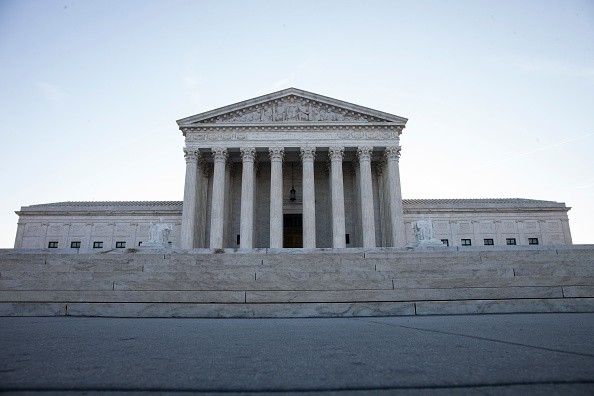California Churches Can Hold Indoor Services Despite Pandemic, Supreme Court Rules

A divided Supreme Court ruled on Friday that California churches can hold indoor services during the pandemic.
The Supreme Court voted 6-3, granting the appeal of a south San Diego church that has repeatedly challenged California's restrictions on churches.
Friday night's order said the state could impose a 25 percent capacity cap on churches and let the state ban chanting and singing in indoor services, reported Bloomberg Law.
With the ruling, California Governor Gavin Newsom's strict coronavirus restrictions were deemed violative of the religion's free exercise, Los Angeles Times reported.
The order also marked a new display of the eagerness of the court's conservative justices in protecting religious rights even public health is at stake.
The order reinforces another decision by the Supreme Court that blocked strict capacity limits in New York, also arguing on the basis of religious rights.
South Bay United Pentecostal Church, which seats 600 people in its congregation near San Diego, filed for the high court's emergency request, said USA Today.
A similar challenge was also filed by Harvest Rock Church, which seats 1,250 people. Three of the court's liberal justices, namely Elena Kagan, Stephen G. Breyer, and Sonia Sotomayor, dissented.
California Enforces 'Most Extreme' Restrictions on Churches
California enforced the "most extreme" coronavirus restrictions in churches, and other places of worship in the country, Becket Fund for Religious Liberty told the court.
While several states opted to simply limit capacity in church services, California enforced a ban on indoor worship and is "the only state" to do so in all but the thinly populated counties. Even though the justices had differences in opinion, they agreed that California did single out churches for unfair treatment.
"California worries that worship brings people together for too much time," Justice Neil Gorsuch said in his concurring opinion. "Yet, California does not limit its citizens to running in and out of other establishments; no one is barred from lingering in shopping malls, salons, or bus terminals."
Some Justices Say Ruling Has 'Special Exception' for Worship Services
In her dissenting opinion, Associate Justice Kagan acknowledged that the justices of the Supreme Court were not experts when it came to matters of public health.
"Justices of this court are not scientists. Nor do we know much about public health policy. Yet today the court displaces the judgments of experts about how to respond to a raging pandemic," Kagan wrote.
Kagan also pointed out that the order weakens California's public health restrictions on public gatherings as it placed a "special exception" for places of worship.
Writing with other Justices Clarence Thomas and Samuel Alito, Gorsuch said California had granted exemptions to Hollywood studios from pandemic restrictions that apply elsewhere.
"If Hollywood may host a studio audience or film a singing competition while not a single soul may enter California's churches, synagogues, and mosques, something has gone seriously awry," Gorsuch wrote.
The court did not explain why it chose 25 percent as the permissible capacity for churches in tier 1 counties. However, Gorsuch said the state allowed most retail establishments to operate at 25 percent occupancy in tier 1 counties.
Subscribe to Latin Post!
Sign up for our free newsletter for the Latest coverage!
© 2025 Latin Post. All rights reserved. Do not reproduce without permission.















